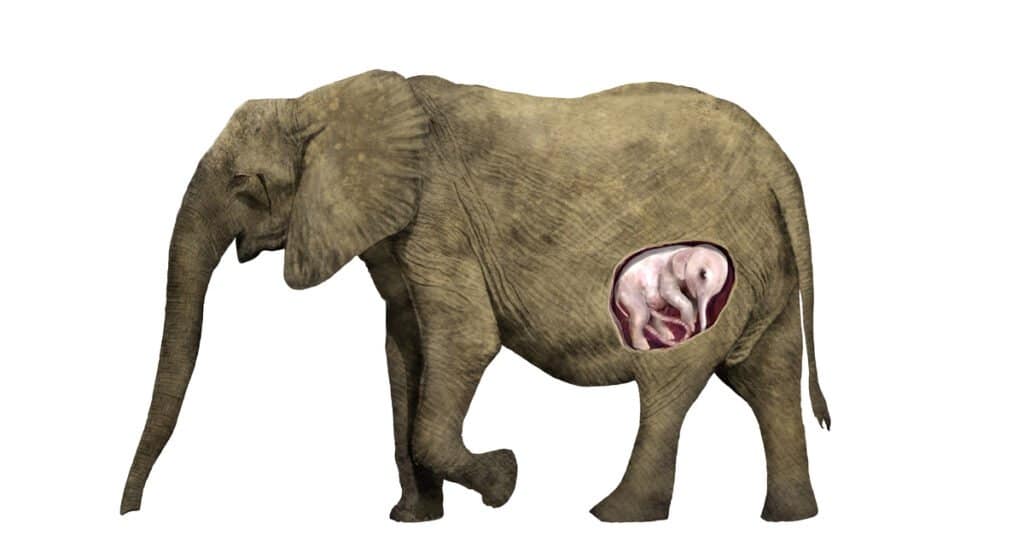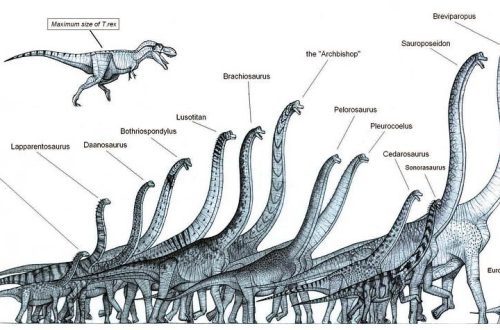
How long does an elephant’s pregnancy last: why elephants have the longest gestation period
An interesting fact is that in both female and male elephants, puberty occurs much later than in other animals of our planet. Also, the time between births passes more than other representatives of the animal world. We will analyze the following questions in this article: why elephants have the longest pregnancy; interesting facts about elephants; what do baby elephants eat.
Elephants have the longest pregnancy
Pregnancy in female elephants is very interesting. First of all, it is worth noting that the gestation period lasts about two years. This is an amazing fact. But such a long pregnancy, unfortunately slows down the growth of the elephant population. No other animal on earth has such a long pregnancy. It turns out that at the 19th month of pregnancy, the baby elephant inside the mother is already fully developed.
The fetus of a baby elephant is not just so long in the womb. Since the elephant itself is a large animal compared to others, the baby elephant is born into the world almost fully grown in order to be prepared for survival. For such a long period of time in the womb, his bones get stronger, the skin appears, the baby elephant is gaining strength. It is this long presence in the womb ensures his survival in the wild world.
As a rule, during childbirth, the female elephant moves away from the herd to give birth. When a baby elephant is born, he is almost ready for adulthood, but still he is not completely independent. During 4 years he will still need the attention and care of his mother. It is very interesting that a new baby elephant in the herd can help young elephants who are just getting ready to become mothers. They go through the so-called practice to prepare for their new role as a mother.
Amazing Fact
- Within half an hour after giving birth, the baby elephant can stand up on its own.
- Just a few days later, the cub can follow the herd on its own. He clings with his trunk to the tail of his mother or older brothers.
The female elephant, as a rule, brings only one elephant, which weighs approximately 100 kg and grows up to 1 meter. The birth rate of two baby elephants in a female elephant is very low. The baby elephant has small tusks, which are about 4-6 cm long. When the cub is two years old, its tusks fall out and change to adult tusks, just like in humans.
When calving occurs, other female elephants stand around the elephant to make a kind of protective circle. After the female gives birth to a cub, she gives out feces so that he remembers the smell of the mother and is not lost in the future. The baby literally immediately begins to suck his mother’s milk. Thanks to her trunk, the elephant puts dirt and dust on the elephant, thereby hiding his own scent from predatory animals. Watching this process, you can understand that a herd of elephants is a whole friendly family. Elephants are very well adapted to social life. In the animal kingdom, elephants are considered to have the most close-knit community of all animals.
What do baby elephants eat?
- Mother’s milk. He can drink it until 4-5 years.
- Solid food. A baby elephant already six months after its birth can eat solid food.
- Elephant faeces – mothers. Baby elephants can eat their mother’s feces. They contain a lot of useful and nutritious substances, as well as bacteria that may aid in the absorption of cellulose.
Elephant mothers continue to care for their cubs for several years. As a rule, female elephants give birth once every 2-10 years. And all this time the baby elephant is next to his mother. And only then leaves the herd.
An interesting study that was done in the Addo National Park found that the majority of elephants who are under 50 years old are either already pregnant or already feeding their baby elephants.
In the past, veterinarians and scientists were interested in the question of how long the pregnancy of these amazing mammals lasts. Today, scientists are wondering why elephants have such a long gestation period. With the help of modern technology, it has been possible learn about the pregnancy stages of elephants. And thanks to this, it is now possible to improve the birth rate of animals that are not in the wild.
These amazing animals have another amazing feature. Elephants have their own ovulation cycle – none of the other animals have this. The huge gestation period in elephants is due to the fact that their hormonal mechanism is completely different from other animals around the world. What scientists are studying great importance in the natural world. These studies will help to preserve the genus of rare species of these animals both in captivity and in the wild. Scientists will always have many questions, and nature has many mysteries.
You can still study the life of these wonderful creatures for a long time. Scientists still have a lot of research to do. Learning and studying the mysteries of nature, one can be surprised more than once that there is a beautiful world around us and it surrounds us. Scientists will always have many questions, and nature has many mysteries.





